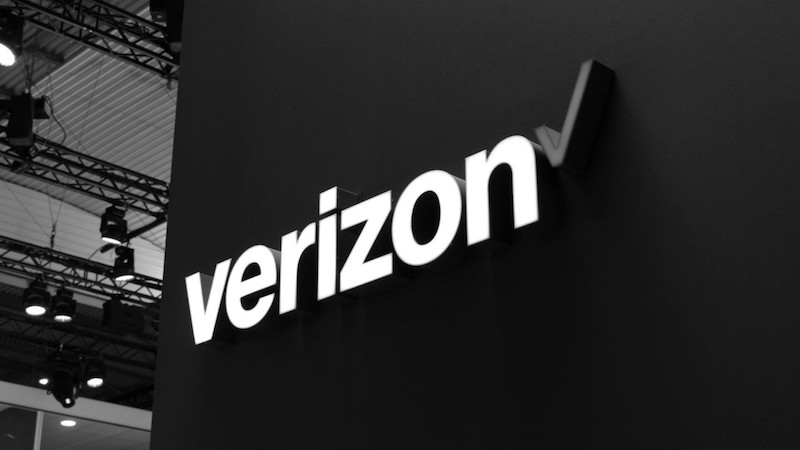by Tony Scherrer, Smead Capital Management
The worst sort of business is one that grows rapidly, requires significant capital to engender the growth, and then earns little or no money.”
– Warren Buffett, 2007 Shareholder Letter
Dear fellow investors,
We are big fans of Buffett’s theories about businesses with low capital requirements and the ability to throw off cash to owners. Unfortunately, he recently emphasized indexing and didn’t shy folks away from today’s glamour tech stocks which require more and more capital. In Berkshire’s 2007 Letter to Shareholders, Buffett outlined what “The Great, the Good and the Gruesome” businesses look like. He profiled “gruesome” business by using airlines as his poster child and described them in the opening quote of this letter. Buffett would have been well served by listening to his 13-year-younger self, and we think his description of gruesome stocks should serve us well in assessing today’s market.
The 2020 Shareholder Meeting of Berkshire Hathaway led by Warren Buffett left many of his disciples and observers to wonder – including us – what he would like to invest in today. “Never bet against America,” he said, as he walked us through historically perilous times that grew us stronger. But nearly all specific or practical ideas were panned or discredited, other than recommending the S&P 500 Index, no less than three separate times. Recent Buffett interviews give some insight on businesses he seems enamored with, including Amazon, Google, and Apple. Perhaps this explains some of his Index affection.
Nothing that day was discredited more than airlines. Berkshire sold all its airline stocks in just a handful of months after becoming the largest shareholder of the four largest airlines by the end of 2019.
“The worst sort of business is one that grows rapidly…”
The S&P 500 has 21% of its weighting in just five stocks: Microsoft, Apple, Amazon, Facebook and Alphabet. David Kostin of Goldman Sachs recently mentioned that these top five names have an expectation of revenue growth of 14% over the next two years, and trade at 28x the forward two-year earnings average. The other 495 names are expected to grow revenue just 4% over the next two years, and trade at 14x the forward two-year earnings average. The market is paying twice the valuation for this growth differential. But these stocks, along with a host of other “Covid-safe” companies with current visibility are now ubiquitously declared the obvious winners, which will undoubtedly dominate our lives ad infinitum. Investors should be reminded that the volatility of price to earnings ratios are significantly higher than the respective underlying earnings. In other words, investor expectations are far fickler than the businesses themselves. This should be a warning to stay away from high expectation stocks as the market rarely serves the crowd on a more than short-term go-forward basis.
“…requires significant capital to engender the growth”:
Among the most heavily weighted names in the S&P 500 which garner the highest expectation for earnings growth in the next three to five years include Netflix, Amazon and Facebook. Netflix’s cost for its content has mushroomed from $4.5bn five years ago to an expected $15bn in 2020 and will have to continue to expand to operate its business. Amazon has all the visibility you want as a clear Covid winner, and recently announced a $4bn increase in costs associated with safety of its workers and protection in its warehouses on the heels of its deficiencies. All these companies are entering a new world of increased regulatory scrutiny, which may not be dissimilar to what the banking industry experienced in its “too big to fail” era. Facebook’s recent quarter included a 34% increase in expenses year-over-year to a whopping $46.7bn, as its cost to acquire new customers and increased regulatory expenses spiked.
“…then earns little or no money”
Sticking with the above examples, Netflix burned $3.1bn in free cash flow last year and must persistently ramp that up to attract and retain subscribers. Amazon’s flywheel generated an eye watering $280bn revenue number in 2019, but operating profits for everything outside its cloud business came in at a measly $5.3bn. The newfound costs needed in its business will cause it to earn far less than grocery-store margins, which ironically it seems to be attracted to. Facebook is unlike these two, showcasing a quite profitable business with high returns. You currently pay 68x forward price-to-earnings for Netflix, 126x for Amazon, and 28x for Facebook. These levels of investor enthusiasm might classify them as gruesome stocks even if their businesses have merit.
It looks to us like Buffett needs to listen to Buffett again, and he is forgetting what gruesome looks like by fawning on the Index and some “obvious” winners of today. It is incredibly hard the next 5-10 years for the Index to do well if these types of gruesome stocks don’t rise substantially.
Looking for the Un-gruesome:
If Buffett is right, then what about slow growth, capital light, and profit-generating businesses? We’ve got a portfolio loaded with them, but we’ll highlight three to illustrate the point.
Discovery Communications (NASDAQ: DISCA):
Discovery is a wonderful business. It has a portfolio of channels that garner addicted viewers, including the Discovery Channel, HGTV, Food Network, Travel Channel, Animal Planet, the DIY network and a host of others. It is agnostic as to how its content gets distributed. David Zazlav, its CEO, says they achieve similar levels of profitability over traditional cable channels or internet protocol platforms. Its content is ubiquitous, and they own 98% of what gets produced. This provides them among the highest profitability in the business which regularly generates ~20% returns on equity. It has catapulted its free cash flow from $1.3bn before the Scripps Networks acquisition to $3.1bn in just a few years, yet requires nearly no ongoing capital expenditures in comparison. No one expects it to “grow rapidly” as gruesome businesses do. It has grown its sales and earnings by 12-13% per year over the last five, but consensus among analysts expects just 4-5% growth going forward. The market is valuing it at a meager 7x forward earnings and a whopping 26% free cash flow yield. It seems the market is extrapolating its Covid perspective onto Discovery with a far longer view than is reasonable to us.
American Express (NYSE: AXP):
American Express is another very low expectation stock with no believers in its future growth prospects. Travel and entertainment spending on its cards represent around 20% of overall spend, and that category is currently -95% year over year. Its stock is -30% over the last year compared to Visa (NYSE: V) and Mastercard (NYSE: MA), both +12% in that same time. Analysts expect earnings growth of just ~7% going forward. Half of its business comes from transaction activity, while the remaining parts come from it being a Merchant Acquirer, Network provider, and Card issuer. Parts of its business are identical to Visa and Mastercard, but Covid-thinking has gotten its earnings multiple to the lowest levels it has nearly ever traded at vs. the S&P 500 over the last 20 years. Due to its incredibly tight relationships with its cardmembers, it boasts the lowest net write-off rates and highest margins among card issuers and has around 4x the average spend per card compared to a Visa or Mastercard holder. This $65bn market cap company generated nearly $12bn in free cash in 2019, requiring only $1.6bn in capital expenditures to do so. It has been shareholder friendly for many years.
NVR, Inc. (NYSE: NVR):
It’s hard to imagine something with lower expectations than a homebuilder today, and NVR is among the best of breed. It has awarded shareholders with an average 22.1% per annum compounding since 1999, but current consensus believes that earnings grow only 8% going forward. Its highly efficient “land-light” model allows it nearly no required capital expenditures, yet it generated $850 million in free cash flow last year. Its profitability ratios are strong enough to make you wonder whether it’s even a homebuilder, with consistent 30-35% returns on unleveraged capital and equity. It has bought its own stock so heavily over the last 20 years that its shares outstanding today are 68% lower. Most viewers would consider NVR to be a gruesome stock to own today, but it is quite the opposite of what Mr. Buffett described in 2007.
This is a critical time to tack away from the obvious and visible winners and start to build positions in areas that are heavily doubted and have little clarity. Sir John Templeton reminded us to buy your straw hats in the winter. He talked about buying the “point of maximum pessimism” and said, “If you wait to see the light at the end of the tunnel, you have already missed the bottom.” This wisdom for the ages seems lost today but won’t be forever. You must be willing to look foolish and stand against the crowd to efficiently allocate capital. In the meantime, our job is to avoid gruesome stocks and respect Buffett’s 2007 lesson.
Warm regards,
Tony Scherrer, CFA
The information contained in this missive represents Smead Capital Management’s opinions, and should not be construed as personalized or individualized investment advice and are subject to change. Past performance is no guarantee of future results. Tony Scherrer, CFA, Director of Research, wrote this article. It should not be assumed that investing in any securities mentioned above will or will not be profitable. Portfolio composition is subject to change at any time and references to specific securities, industries and sectors in this letter are not recommendations to purchase or sell any particular security. Current and future portfolio holdings are subject to risk. In preparing this document, SCM has relied upon and assumed, without independent verification, the accuracy and completeness of all information available from public sources. A list of all recommendations made by Smead Capital Management within the past twelve-month period is available upon request.
© 2020 Smead Capital Management, Inc. All rights reserved.
This Missive and others are available at www.smeadcap.com.












